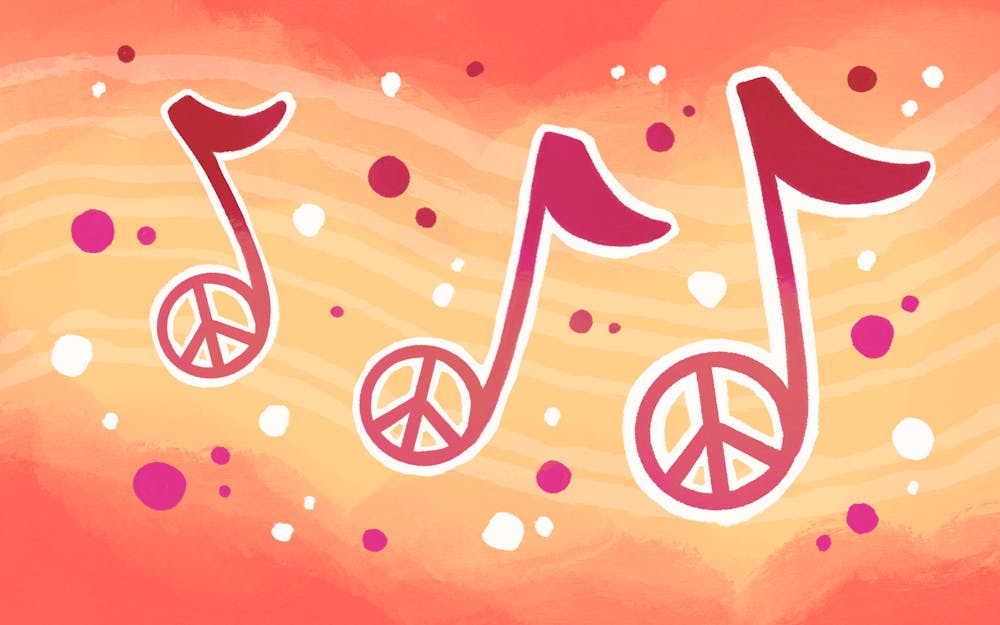When my grandmother passed away, I was devastated by grief and loneliness. I began experiencing hallucinations, hearing her voice even though I knew she wasn’t there. Traditional outlets like talking to friends or journaling weren’t enough, particularly during the COVID-19 lockdown when isolation made the situation worse. It was during this difficult time that I discovered music therapy, a tool that helped me manage my grief and hallucinations in ways I never expected.
Music therapy is an intentional practice that uses sound to engage with the emotional, cognitive, and physical aspects of healing. It’s much more than casual listening — this approach involves selecting specific melodies, rhythms, and tones to foster well-being. For me, it all began one night when the loneliness felt unbearable, and my mind wouldn’t stop racing. Desperate for some form of relief, I reached for my headphones and played a soft, calming melody.
As the first few notes filled the silence, something unexpected happened. The chaos in my mind began to quiet down. The steady rhythm of the music seemed to wrap around me like a warm embrace, gently pulling me back to the present. For the first time in what felt like an eternity, I found a moment of peace, a stillness I hadn't thought possible in my mental state. For me, it became a crucial part of coping with my hallucinations. The slow, steady rhythms helped me feel grounded, and certain songs allowed me to release emotions that were otherwise difficult to express.
This journey also led me to explore the concept of Indian Raga Therapy, a form of healing that has been used for centuries in India. This structured approach uses specific ragas (melodic frameworks) to evoke emotions and support mental well-being. While the scientific community has increasingly recognized music therapy's benefits, traditional systems like Raga Therapy show how ancient cultures intuitively understood the healing power of sound long before modern research confirmed it. Many people, myself included before my experience, turn to music casually, unaware of its full potential for emotional healing. Yet, research continues to demonstrate that music can affect mood, cognition, and physical well-being in ways other interventions cannot.
For those interested in trying music therapy, there are several avenues to explore. Music therapy can be done in two primary ways active interventions—like singing or playing instruments to directly process emotions, and receptive interventions, where a therapist guides listening to sessions for reflection. Sessions might involve creating melodies, discussing lyrics, or simply listening, each helping to manage emotions in unique ways. The Certification Board for Music Therapists (CBMT) advocates for this practice, ensuring safe and effective care through rigorous standards. Therefore, it’s recommended to start under the supervision of a certified music therapist, who can tailor sessions to individual needs and provide guidance on selecting music based on therapeutic goals.
However, for those who may not have access to a certified therapist, there are still ways to explore music therapy independently. Beginners can start by incorporating structured music listening into their daily routine. The AMTA website and mobile apps like "Insight Timer" and "Headspace" offer guided music sessions designed to promote relaxation, focus, and mood regulation. Additionally, specific YouTube channels feature playlists created for therapeutic listening, such as Indian Raga Therapy or classical music for mindfulness, allowing individuals to experiment with music’s effects on their mental state. For those interested in exploring cultural forms, trying out genres like Indian classical or traditional healing music can add depth to the experience.
Music therapy was a lifeline for me during my period of intense grief and loss. It helped me cope with the emotional turbulence I was experiencing and provided me with a way to manage the hallucinations that compounded my loneliness. But more than that, it gave me a sense of agency and control over my healing journey.
For anyone struggling with mental health challenges — whether related to grief, anxiety or trauma — music therapy offers an alternative pathway to healing. It provides a safe space to express emotions, manage stress and find comfort through sound. As we move forward in expanding the resources available for mental wellness, it’s time we move beyond casual listening and embrace the untapped power of music therapy.
Aryaa is a sophomore studying Marketing, Business Analytics, and Economics & Quantitative Methods.






